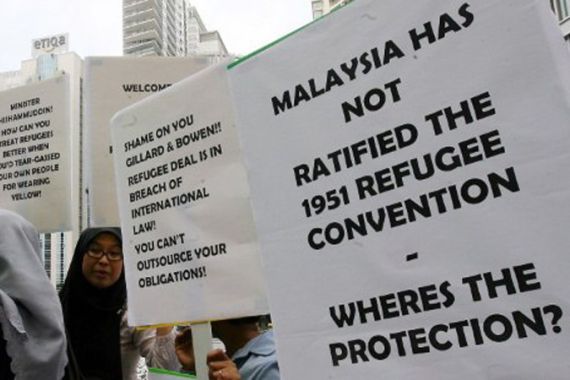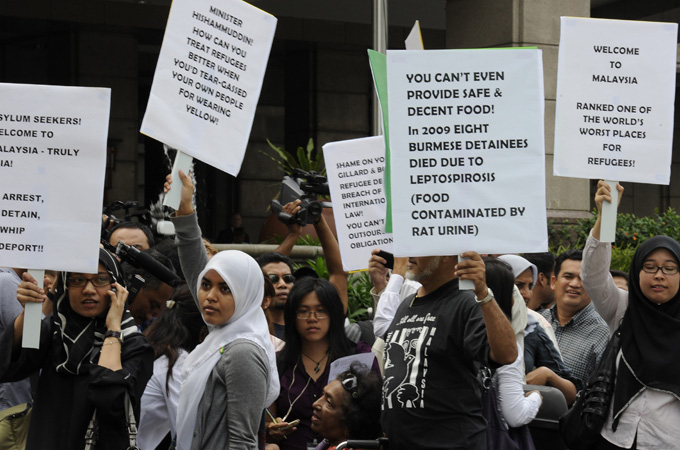Australian court blocks Malaysia refugee swap
High Court blocks government’s plan to send asylum-seekers to Malaysia in exchange for resettling 4,000 of its refugees.

 |
| Lawyers argued that the swap was illegal because Malaysia is not a signatory to the UN Refugee Convention [Reuters] |
Australia’s High Court has blocked the Federal Government’s plan to send asylum-seekers to Malaysia as part of a refugee-swap deal, saying that the proposal was “invalid”.
In a major blow to the government’s plans to ship up to 800 asylum-seekers to the Asian country in exchange for resettling 4,000 of its refugees, the court extended an injunction on Wednesday on removing asylum-seekers to the country.
“Today the High Court held invalid the Minister for Immigration and Citizenship’s declaration of Malaysia as a country to which asylum seekers who entered Australia at Christmas Island can be taken for processing of their asylum claims,” the court said in a statement.
Earlier this month, the court granted a temporary injunction to civil rights lawyers acting on behalf of two asylum seekers who were scheduled to be among the first to be transferred to Malaysia.
|
Court blocks Australia refugee swap |
The lawyers argued that the deportations would be illegal because Malaysia does not meet the human rights standards stipulated in Australian law, as it is not a signatory to the UN Refugee Convention.
“This is about life or death matters and our clients are challenging the government’s power to expel them to Malaysia where they fear they will not be protected and they are at real risk of harm,” said David Manne from the Refugee and Immigration Legal Centre in Australia.
Manne said that Australian law requires that the refugees’ claims be considered in Australia, not expulsion.
The government of Julia Gillard, the Australian prime minister, signed the Malaysian deal to deter human trafficking, and to fight perceptions that her government was soft on asylum seekers.
However, the deal came under increasing criticism after it was revealed that unaccompanied children who arrived by boat would not be exempt from transfer.
Commenting on the High Court’s ruling, Marianne Dickie, an expert on migration law at the Australian National University, said: “It’s a slap in the face for the Gillard government, it’s a huge setback for the Malaysian solution. It effectively hobbles it [the policy], if not ending it.”
Prior to the ruling, Immigration Minister Chris Bowen, in a filing to the court, said Malaysia had made a “significant conceptual shift” in its treatment of asylum seekers and he deemed conditions there acceptable.